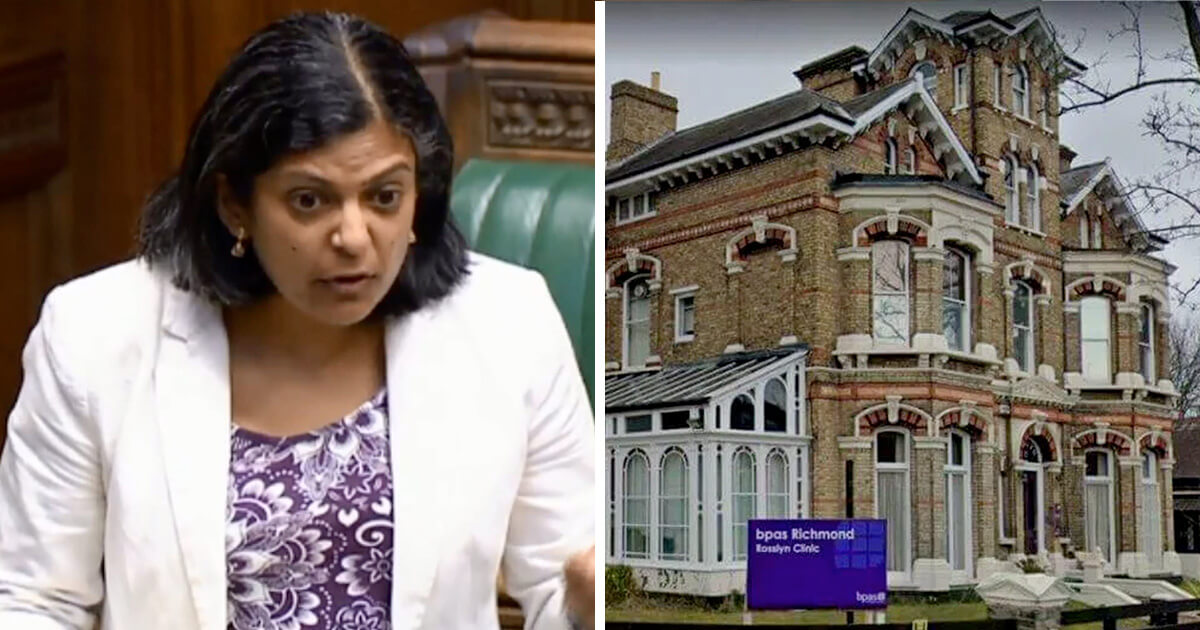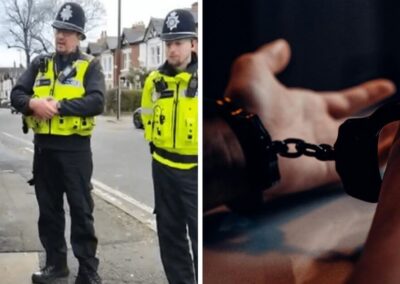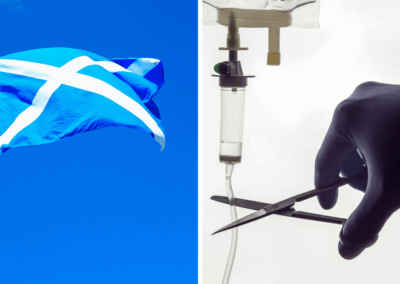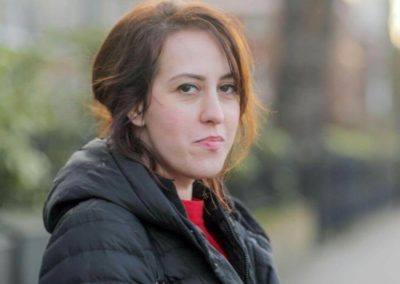Women facing unplanned pregnancies could be denied emotional and practical support outside abortion clinics under a new Ten Minute Rule Bill being brought forward this week.
On Wednesday 24 June, Labour MP Dr Rupa Huq will introduce the Demonstrations (Abortion Clinics) Ten Minute Rule Bill calling for legislation “to restrict demonstrations in the vicinity of abortion clinics; and for connected purposes.”
While Ten Minute Rule Bills rarely become law, the abortion lobby are likely to call for a vote on Wednesday.
Pro-abortion MPs could then attempt to bring forward a censorship zone amendment to the Domestic Abuse Bill, during the Bill’s Report Stage, claiming there is support to do so should they win the vote on the Ten Minute Rule Bill.
If introduced, censorship zones would effectively ban volunteers from peacefully praying and offering support to women entering abortion clinics across England and Wales.
A spokesperson for Right To Life UK, Catherine Robinson said: “By attempting to restrict where women facing unplanned pregnancies can receive compassionate emotional and practical support, the ‘pro-choice’ lobby are removing real choice for women and revealing they’re really just pro-abortion.
“Today, many babies are alive because their mothers were able to get the help they needed outside of an abortion clinic.
“We would, therefore, urge MPs to vote against this motion and send a clear signal that women should not be denied the choice of life-saving support for them and their baby.”
Home Office review
Due to additional powers handed over to councils in 2014 by the former Prime Minister Theresa May, a number of councils have already introduced localised censorship zones.
Ealing council, in Dr Huq’s constituency, is one such council along with Richmond. In addition, Manchester City Council has consulted its residents on the matter, while seven other councils are reported to be looking into the issue.
In 2017, former Home Secretary Amber Rudd launched a review into the scale and nature of pro-life vigils outside abortion clinics to establish if the Government would recommend the introduction of censorship zones.
In the investigation continued by the succeeding Home Secretary Sajid Javid, over 2,500 responded to a call for evidence, including abortion service providers, abortion service clients, those engaging in anti-abortion demonstrations, police forces and local authorities.
In 2018, Sajid Javid announced that the Home Office did not find adequate reason to introduce censorship zones, stating that: “…introducing national buffer zones would not be a proportionate response, considering the experiences of the majority of hospitals and clinics, and considering that the majority of activities are more passive in nature. In making my decision, I am also aware that legislation already exists to restrict protest activities that cause harm to others.”
Widespread opposition
Opposition to censorship zones goes beyond pro-life advocates to a large part of society, which may not agree on the pro-life position on abortion, but oppose censorship zones because they infringe on free speech.
A number of prominent human rights groups and campaigners, all of whom support abortion, have also spoken out against the introduction of censorship zones. This includes Peter Tatchell, the Manifesto Club, Big Brother Watch, Index on Censorship and the Freedom Association.
Dr Huq has been a longtime and proud supporter of abortion provider BPAS’ ‘Back Off’ campaign which calls for nationwide ‘criminalised free speech zones’ which ban peaceful pro-life activity outside abortion clinics.
Abortion lobby’s longterm plan to limit choice
In a 2017 opinion piece for the Guardian, the Labour MP revealed “ideas have been percolating” on how to go about restricting pro-life demonstrations since January 2017.
Over three years later, it appears the abortion lobby are now testing whether they have the momentum to limit women’s choice and the support offered to them.
It follows “tragic” votes approving the UK Government’s imposition of an extreme abortion regime on Northern Ireland in the House of Commons and House of Lords last week.
The Be Here for Me website highlights just some of the many stories of women who have been helped by people outside abortion clinics, and the stories of future women who could miss out on such support in the future.
One mother who who kept her daughter as a result of the pro-life support she receieved outside an abortion clinic, in Ealing, will soon challenge the use of ‘criminalised free speech zones’ at the European Court of Human Rights.
Alina Dulgheriu launched the legal challenge because she wants other potential mothers to receive the same practical and emotional support she was offered – support which led to her keeping her daughter, Sarah.
Explaining why she’s taking the case forward, Alina said:
“My little girl is here today because of the real practical and emotional support that I was given by a group outside a Marie Stopes centre, and I am going to appeal this decision to ensure that women do not have this vital support option removed.
“I will continue to stand up for the women whose voices have been sidelined throughout this process and for women who need life-saving support today but cannot get it.
“Ealing Council could have taken action in a way that would have protected women and safeguarded the essential help offered at the gate. Instead, they criminalised charity and attempted to remove dedicated and caring individuals from public space without justification.
“It is very clear that many are opposed to Ealing’s ban on peaceful and charitable activity, and like me, they want to see support available to vulnerable women where it is most needed.”












